Thoughts on Turkey
The end of November. Family gatherings, The Dallas Cowboys playing on TV, the smells of traditional Thanksgiving recipes wafting from the kitch–
Wait. Sorry. Not that kind of “turkey.” This one:
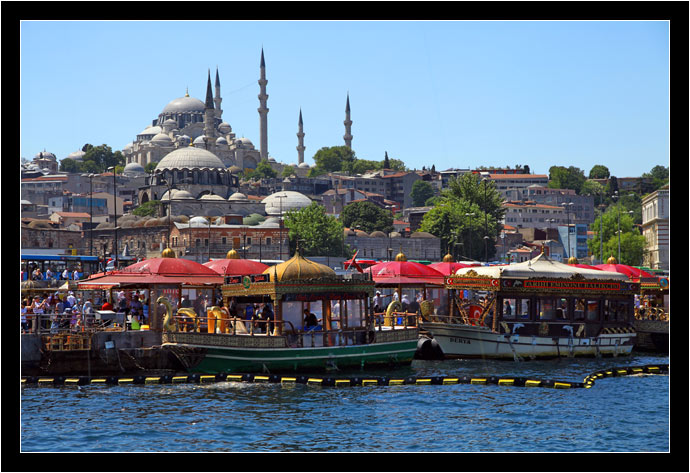
Turkey was never on our list of must-visit countries. The only reason we went to Istanbul was because (aside from some place in France), it was the cheapest fare out of Israel listed on Kayak.com. We only spent three days there, and we didn’t stray far from the Sultanahmet area, but even just that little taste was enough to put Turkey at the top of a list of places I want to return to again.
Public Transportation
Arriving in a new country is never very fun. There’s always so much to figure out. When we fly in, our priorities are to get through immigration, find an ATM to secure some local currency at an exchange rate we can trust, and then we usually just suck it up and pay for a cab straight to a hotel. Airports are usually a good distance from the city center and we end up paying for that first ride, but it’s often worth it to skip having to navigate yet another metro, in a foreign language, with all our luggage.
Istanbul was different. The airport was a pleasure to navigate, with English translations printed on every sign. We didn’t yet have visas, so before going to immigration, we followed the signs to the “visa bank.” Step up to any counter, present your passport and a twenty-dollar bill, and they’ll slap a small stamp on one of your empty pages. Total time to obtain a visa: 30 seconds.
Later, as we came out of customs with our bags, we were not surrounded by taxi touts, even when we stopped a minute to look around. We collected our Turkish lira from the ATM and decided to follow the signs to the metro. Hey, why not? It was mid-afternoon and it didn’t look packed. On the way, we spied a tourist information booth. They gave us a free metro map and confirmed what we had already figured out; we’d need to make just one route change on the way.
Metro
Istanbul’s metro system is a pleasure to navigate.
The token dispensing machines couldn’t be easier. Just slide in some cash, select how many trips you want, and out come your tokens and change. The hardest part was getting our big backpacks through the turnstiles. Half way through our ride to Sultanahmet, we had to get off the train line and get onto a trolley (tramvay.) It was slightly more crowded – we had to stand with our packs – but no more troublesome. Within 20 minutes or so, we had made it all the way from the airport to the doorstep of our hotel and at a tiny fraction of what it would have cost us to take a cab!
Tourist Friendly
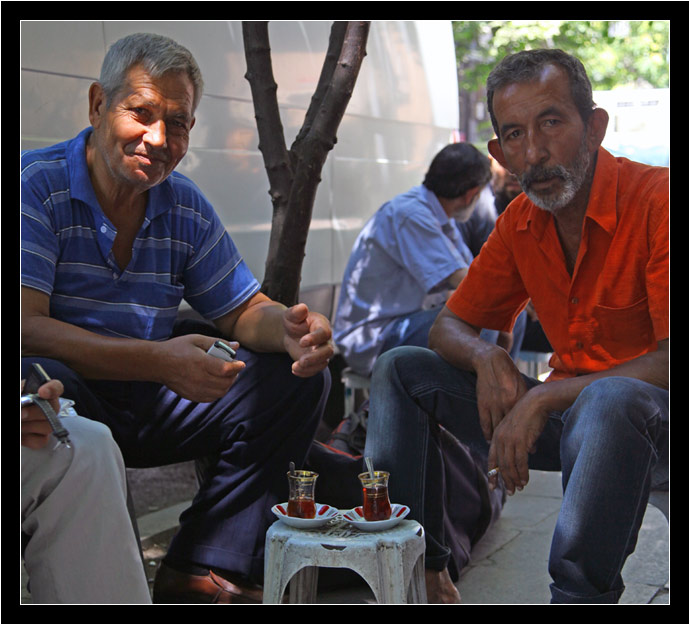
I hate to keep harping on Egypt, but Egypt deserves it. It’s impossible to simply go sightseeing there, because touts and hustlers are constantly vying for your attention. Istanbul, in comparison, was like a breath of fresh air.
Stepping off the metro at the Sultanahmet station was like walking through the gates of Disneyland. The Hagia Sophia and Blue Mosque dominate the skyline, literally thousands of people wander around the large park and countless vendors are selling their wares. We’d been traveling since late the night before and I was in no mood to be harassed on the way to our hotel. I hefted my pack, hunched my shoulders, and resolved to not make eye contact with anyone except the receptionist at the hotel.
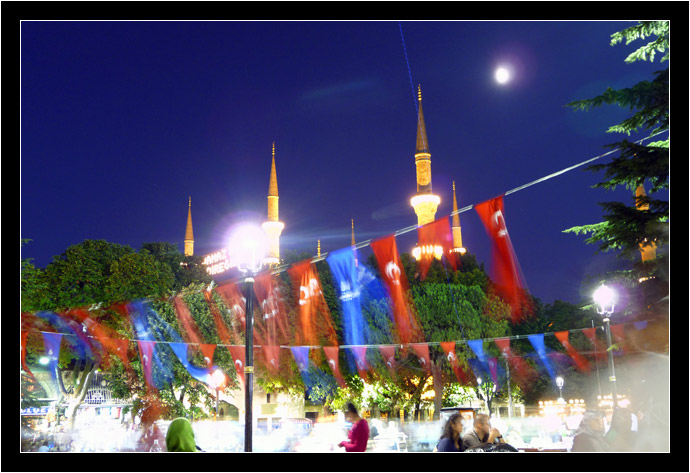
No one spoke to us on the way. No one called out, asking us to buy anything. No one offered us – two tired tourists with backpacks! – a taxi. It was wonderful.
Later that evening, once we had rested a bit, we decided to go out and wander through the stalls. I slung my DSLR over my shoulder – something I would have felt very uncomfortable doing in Cairo – as we headed out the door.
Just as soon as we stepped into the street, a man came out of his carpet store and sidled up next to me. “Sir, can I show you some excellent Persian carpets?”
Oh, here we go, I thought. “No thank you.” I looked straight ahead, but he was still walking along beside me. I turned to give him a bit of a glare.
“Oh, don’t worry,” he said. “I’m just walking in the same direction.” He smiled as we parted ways at the corner. I felt bad.
Over and over, our inaccurate preconceptions were thrown back into our faces like that. At the Grand Bazaar, vendors were happy to have you just window shopping. At the Spice Market, we bought an assortment of dried fruit and the salesmen rounded up when weighing our bag and went on to trim a few cents off the price because it was easier to make change. At a convenience store near our hotel, the guy behind the counter would always throw a couple pieces of gum in our bag, just to be friendly.
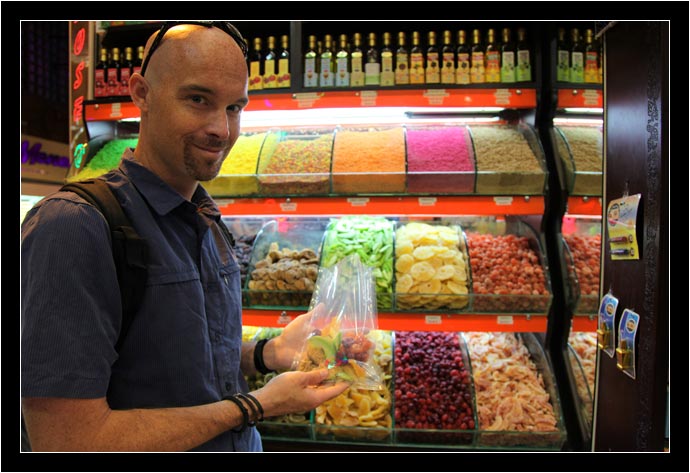
Three days in Turkey wasn’t enough for us to completely lower our guard, but Istanbul went a long way towards restoring our enjoyment of markets.
Shopping
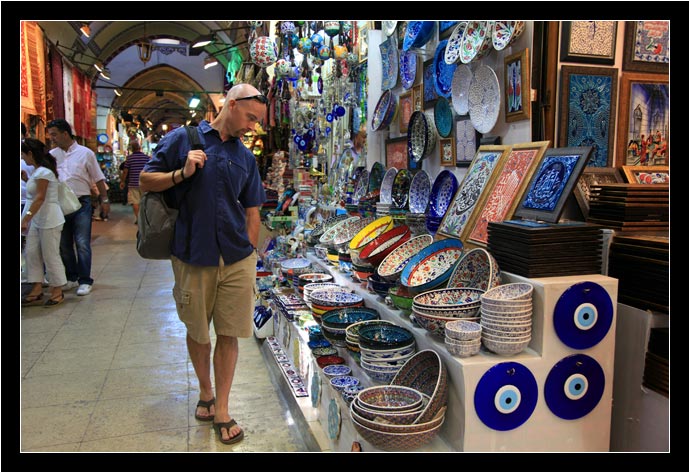
You don’t shop when you’re on a round-the-world trip. Or, if you do, you spend a fortune on postage. Oksana and I have both remarked about how “lucky” we are in this respect. Because we both already have heavy bags and a tight budget, souvenir collecting has lost much of its appeal.
Turkey, however, was perhaps the first country where we began to regret our inability to shop. Hanging lanterns, colorful earthenware, clothing, and antiques. We wanted to take so many things home with us from the Grand Bazaar! We also appreciated that we were once again in a world where prices were posted on most items. Even if we weren’t planning to buy anything, it was nice to at least know the starting price.
I remember an interaction with one of those ubiquitous carpet salesmen. While Oksana was taking pictures in the Grand Bazaar, I was standing around, looking at everything on display. A man came out of his store and walked up to me.
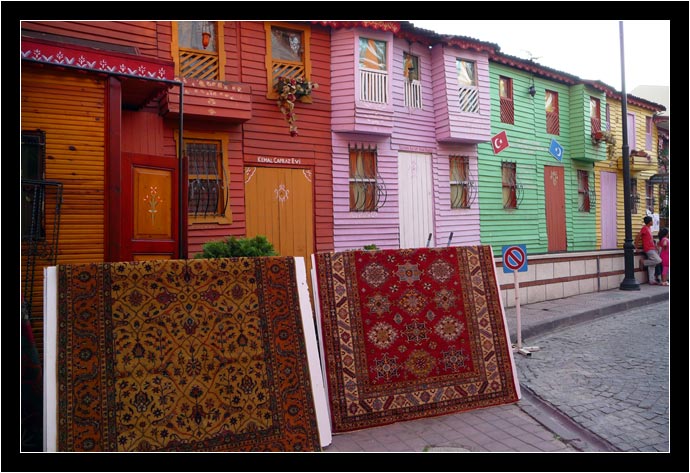
“Come in, let me show you my carpets,” he said.
I could tell his English was pretty good. I decided to be polite and explain why I couldn’t. “I’m sure they’re beautiful, but I can’t buy one.”
“But why? You don’t even know the price!”
“It doesn’t matter. I’ve been backpacking around the world for a year and I don’t have that kind of room in my bag.”
“Ah,” he said, thinking he had me trapped. “This is no problem. I can ship anywhere!”
“Ah,” I replied with a smile, “but I don’t have an address! We sold our house and all our belongings before traveling!” It was a half truth, but it worked. I could see him struggling to come up with another angle, but eventually he had to admit that I wasn’t in the market for a giant rug.
Trenchcoats
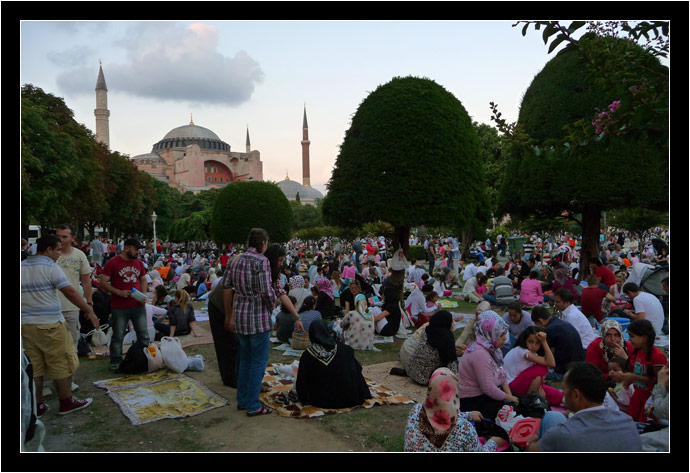
Turkey, or at least Istanbul, is mostly Muslim, but to me, it seemed a much more liberal Muslim than the countries we’d visited in Africa and the Middle East. Granted, we were in a very touristy area, but even at the height of Ramadan, we saw fewer women in full burkas. Perhaps in a testament to how cosmopolitan Istanbul is now, we saw many women who were wearing trench coat-burkas. More stylish than simple billowing silks, these were burkas that managed to cover everything that needed covering, but with fashionable buttons and lapels to give it a certain flair. Reminded me a bit of the costumes in The Matrix.
They say that Asia meets Europe in Istanbul and I can think of no better example than those trendy burkas we saw there.
Smoking
Small note, but one that we certainly took notice of. While waiting for our bus to Bulgaria to get underway, the driver started smoking a cigarette. Within moments, the whole bus smelled like smoke, but fortunately for us he didn’t keep smoking on the 12-hour ride to Burgas.
We Americas often get a (bad?) rap for being overly health-conscious and controlling, but I tell you what: There’s nothing like having a nice meal in a restaurant ruined by a guy with a cigar sitting next to you to make it all seem worthwhile.
That said, this was just one incident in Turkey. To be honest, I’ve been quite surprised about just how many countries we’ve visited that have laws in place to protect the public health. Restaurants, bars, public buildings – many more places that I would have guessed are off-limits to smokers, just like in the U.S.
Fountains
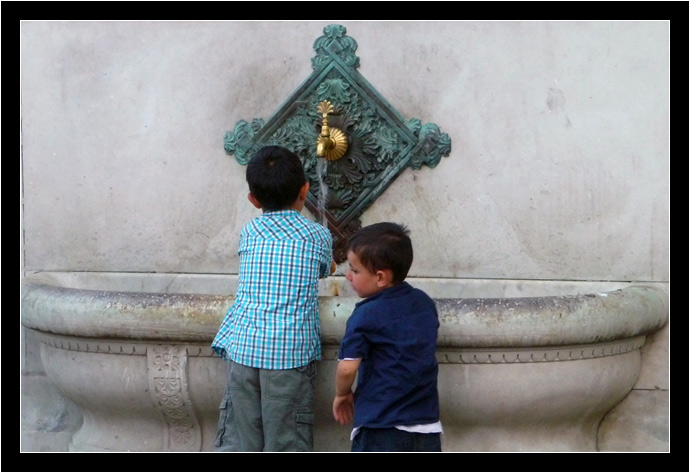
All over Istanbul, we noticed public fountains. Not drinking fountains, more like, I don’t know – something older. These were concrete basins, often set against monuments or ornamental walls. We saw them in Sultanahmet, inside the Grand Bazaar, just about everywhere.
Even cooler, they were almost constantly being used. Often people just stopped by to wash their hands real quick, but I also saw a few people splash water on their heads during the heat of the day. Personally, I wasn’t going to drink from them, but they may have even had potable water. I saw one person washing their fruit in one and another drinking straight from the spigot.
I’d bet this fountain culture is a holdover from past times when people got their water from communal wells. I think it’s pretty neat that the city still devotes resources to keeping a tradition like this alive.
English
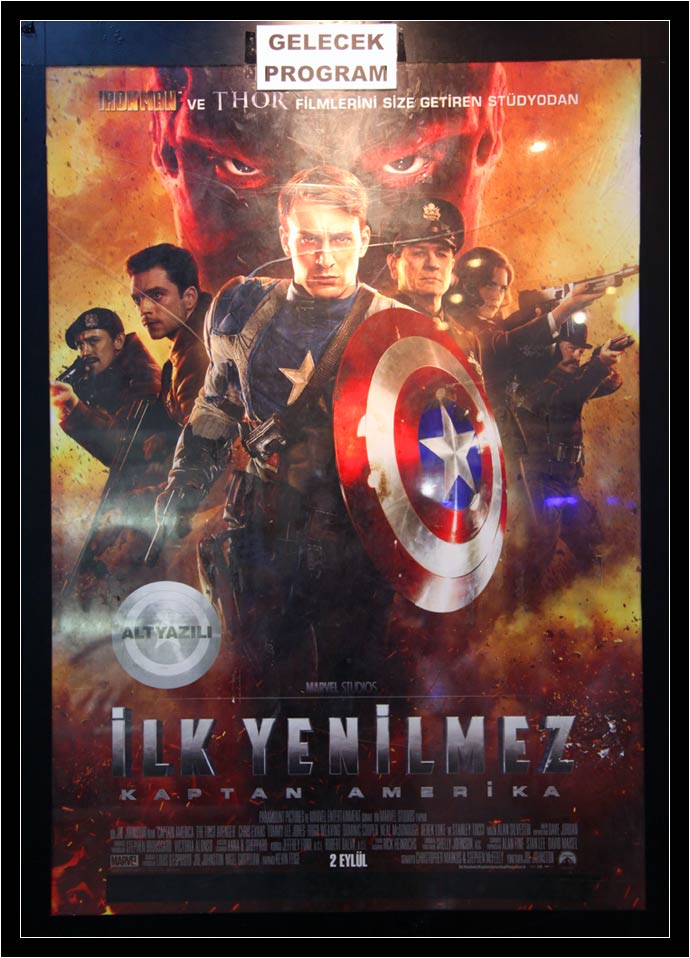
Turkish writing bothered me. After going through a couple Arabic countries – not to mention Israel – where we couldn’t read a thing, I sort of trained myself out of trying to puzzle out the signs. Turkish is written with a modified Roman alphabet, though, so my brain couldn’t help but try to read each one, even though I had no idea how to pronounce any of the letters. The end result was the visual equivalent of having something on the tip of your tongue all day (or perhaps seeing an actor in movie and not being able to place where you’ve seen him before.) Highly frustrating.
Fortunately, however, Istanbul is a lot like other big, touristy cities, in that you’re never very far from someone who speaks passable English. We had no problems communicating with our hotel staff, restaurant waiters, or when asking directions.
Once, on the street, a person walking past us said, as a way of greeting, “Hello please Lady Gaga!” Just like that, all at once, without any punctuation. I have no idea what they meant, but it could almost be a metaphor for what my brain gets out of reading Turkish.
